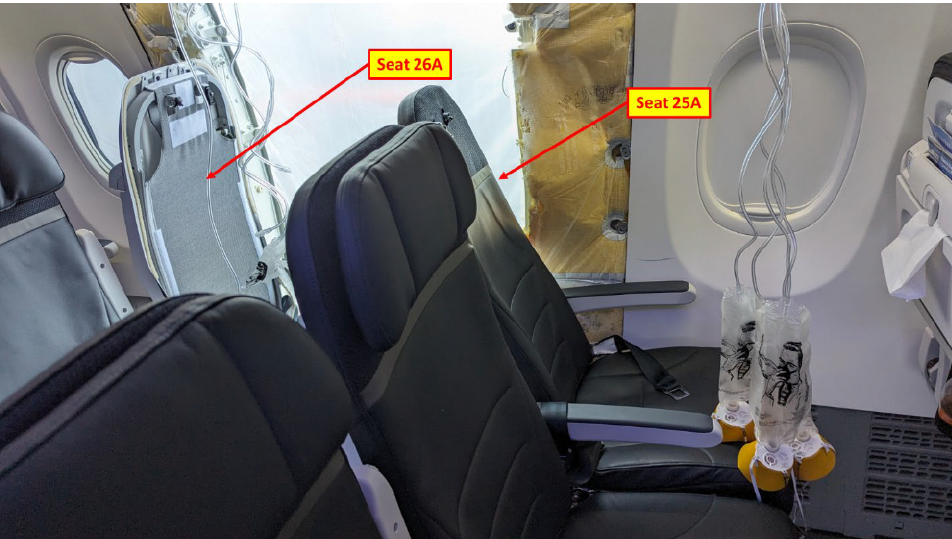Going Direct: 5 Reasons That ATC Privatization Is Bad . . . And Unethical
The proposed giveaway by Congress to the airlines is unprecedented and bad news on all counts. Here are five reasons to demand action. Proof that getting Congress to write aviation…
The proposed giveaway by Congress to the airlines is unprecedented and bad news on all counts. Here are five reasons to demand action.
Proof that getting Congress to write aviation regulations is a twin-edged sword is the latest FAA reauthorization bill, the Aviation Innovation, Reform and Reauthorization (AIRR) Act (H.R. 4411), making its slithering way through the weeds of Washington, D.C. The bill does a few really good things for pilots but with one fell swoop potentially undoes all of that good by privatizing ATC and handing over control of the system to the airlines.
Here are five reasons that this is the worst news ever, no exaggeration, for us GA pilots, those of us who fly everything from small planes to bizjets.
5. It's a giveaway of colossal proportions.
The idea behind the privatization of ATC is that somehow it will get better and more efficient because the government will be kept out of the process. It's a lie. The system is worth untold billions of dollars in potential profit for its users, and the design of the legislation is intended to hand the decision making power over the airlines. For this monumental business opportunity they will be paying exactly nothing. There has never been to our knowledge a giveaway of such proportions. By contrast, the sale of unused radio spectrum a few years back generated billions in payments by the companies that wound up profiting.
4. It's a scam.
The organization that will ostensibly be running ATC is referred to as being not-for-profit, but it will be making decisions that will directly affect the fortunes of users. So if, for example, the decision making deck were stacked in favor of one user over the other, it would be a terrific economic windfall for that user, say for instance, the airlines. And if anyone thinks that the not-for-profit is going to be able to run the organization efficiently and thus keep user fees low (or non-existent) has never observed such an organization (in) action. Why our Congress is doing this is a great question, one I'd love to see answered by some mainstream investigative journalists.
3. The deck is stacked.
The board that will control decisions made by the not-for-profit corporation will be heavily weighted toward the airlines. That GA would get two spots on that board is essentially irrelevant. What good are two votes if you're always on the opposite side of the bad guys, who have 6 or 8 votes.
2. The airlines are the bad guys and they're in direct competition with us.
If you think that somehow the airlines, who would be in control of the decision making process will somehow be benevolent toward GA out of the goodness of their hearts, you haven't taken a close look at an airline's EKG. There's no pulse because there is no heart. ATC will take every opportunity to make flying IFR, and to get any other kind of services, as expensive as they can get away with, and they'll be able to get away with anything they want to, as there is virtually no oversight of the new system. The airlines would conceivably be able to get rid of GA slots at busy airports or to make pricing for services so steep for GA that it would drive down our numbers and make the skies freer (that's sarcasm) and more profitable for the airlines, to name just a couple of dire outcomes for GA. The bad things that it could do us private fliers is nearly endless, and it's practically speaking impossible to predict the kinds of devious schemes it could create to benefit the airlines and hurt GA.
1. Once the rule is law, the game is over.
When you hand over the keys to the car, you shouldn't be surprised to then see it disappear over the horizon. That's what's going to happen to our incredibly valuable, efficient, well funded and safe air traffic control system. To their discredit, our member organizations, from AOPA to NBAA, have decided to play it safe and see what happens to the legislation. To its credit, EAA has got this one right. EAA head Jack Pelton clearly recognizes the danger to GA and encourages EAA members to oppose the legislation and let their elected representatives hear about it. Instead, they need to make this issue their top priority. If it gets through, aviation will be worse for us all and we'll have little recourse.

Subscribe to Our Newsletter
Get the latest Plane & Pilot Magazine stories delivered directly to your inbox






